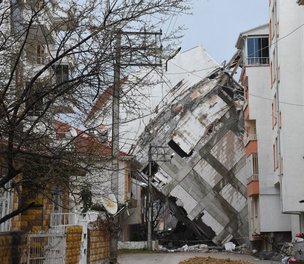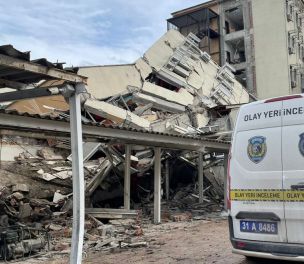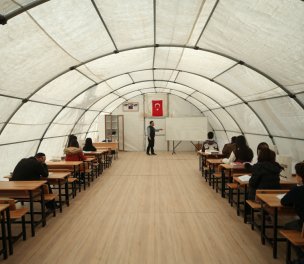Click to read the article in Turkish
Not much information has been disclosed about the situation of prisoners in the provinces affected by the massive earthquakes last month. While some prisoners have been transferred to other provinces, some have to endure the conditions in their prisons.
Berivan Korkut, the advocacy coordinator of the Civil Society in the Penal System (CISST), shared the latest information about prisoners in the earthquake region.
Transfers over "security concerns"
Right now, it is difficult to tell exactly what happens in prisons, and all the information they have reached needs confirmation, Korkut admitted.
"The information the ministry gives about the issue is pretty limited. From the applications made to our hotline, we learned that many penitentiary institutions in the provinces directly affected by the earthquake have been evacuated.
"Since prisons are built strong, we can guess that there was no direct destruction in the earthquake. We can say that the institutions were evacuated due to security concerns. We have the information that some of the prisons in the earthquake region were evacuated completely, and some were evacuated partially.
"We cannot disclose the information about how many prisoners from which prisons because it still needs confirmation."
Families of the prisoners
One of the most important problems of prisoners is that it is overlooked that prisoners are also earthquake survivors, said Korkut.
"We are of the opinion that neither the fact that they lived through the earthquake nor the fact that they lost their relatives in the earthquake region are taken into account much. Among the most common complaints is that there were many problems with prisoners' communication with their families. It is possible to say that some of these problems still continue."
TVs are the only news sources
"Most prisoners who have been kept in the earthquake region cannot receive support from their families in any way.
"For example, according to an application made to our hotline from the Gaziantep Type-L Penal Enforcement Institution, the electricity bill of the ward was 2,500 lira and they cannot pay that because their families are earthquake survivors. If their electricity is cut, they will lose access to the television, which is their only source of news.
"There are also applications that prisoners cannot buy phone cards and cannot even access basic cleaning materials because they cannot receive economic support from their families."
"Transferred without shoes"
About the problems during the transfer of prisoners, Korkut said, citing applications to the association, that many prisoners had to leave their prisons without being able to take their personal belongings with them.
"We even received applications that some prisoners were not able to wear their shoes and were transferred while wearing pajamas," she said.
Another problem is that the authorities have not taken the prisoners' belongings to the prisons where they have been transferred to, despite the applications they made, added Korkut.
Korkut said all prisoners should be provided with phone cards and access to TVs and newspapers at a time when communication is so crucial, as there are prisoners who cannot contact their families.
Also, such prisoners' basic needs should be met by the authorities, she added.
The earthquakesOn February 6, two earthquakes with a magnitude of 7.7 and 7.6 struck the southern city of Maraş. The first quake in the Pazarcık district at 4.17 a.m. was followed by the second one in Elbistan about nine hours later. The quakes affected 11 cities in Türkiye's south and southeast, as well as Syria's northern parts, where over 5,000 people were killed. The official death toll from the quakes stands at over 45,000 and is expected to increase further, as over 160,000 buildings were destroyed or severely damaged, according to government figures. Nearly two million people have been displaced due to the earthquakes. |
(AS/VK)





.jpg)



.jpg)
.jpg)




